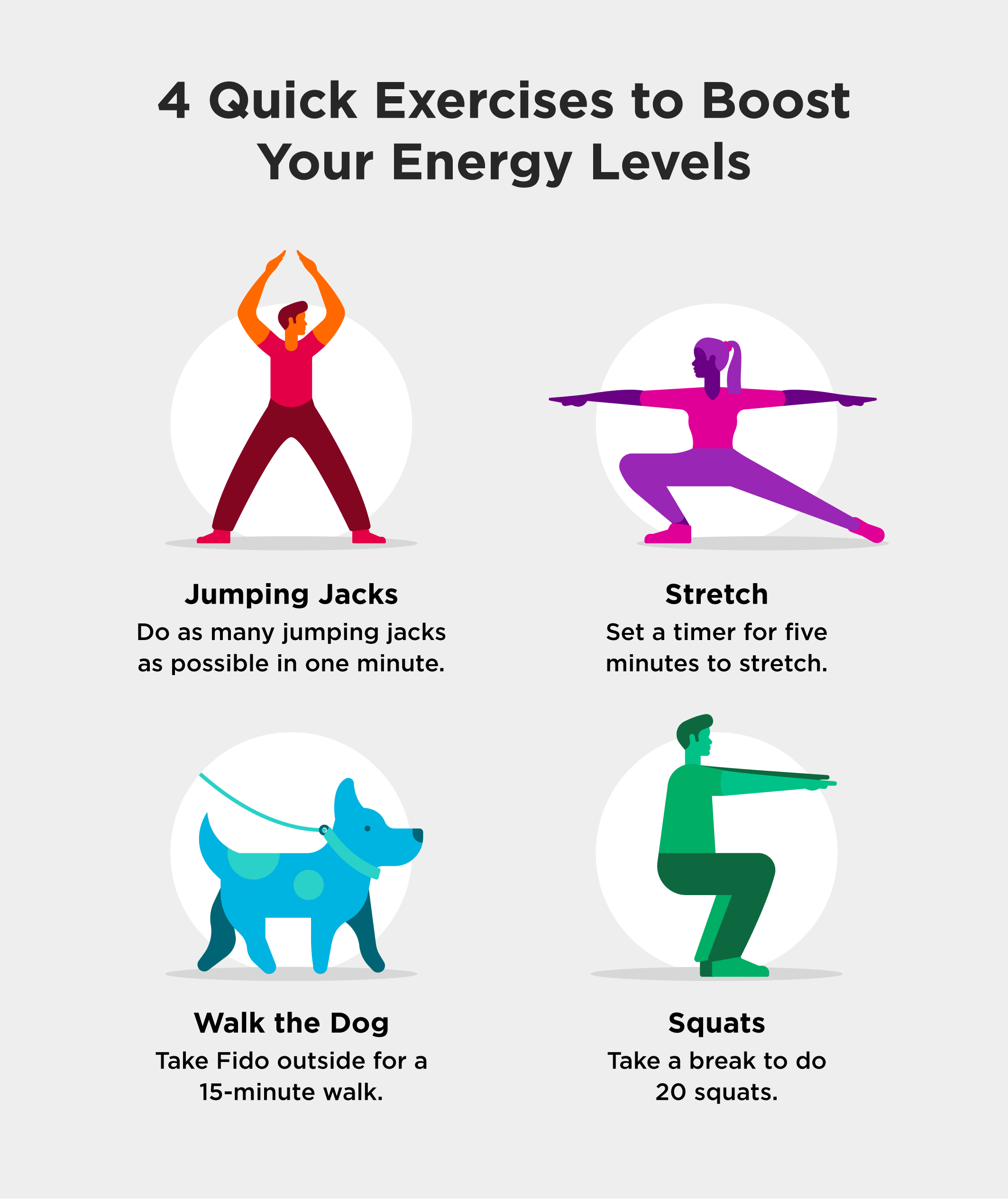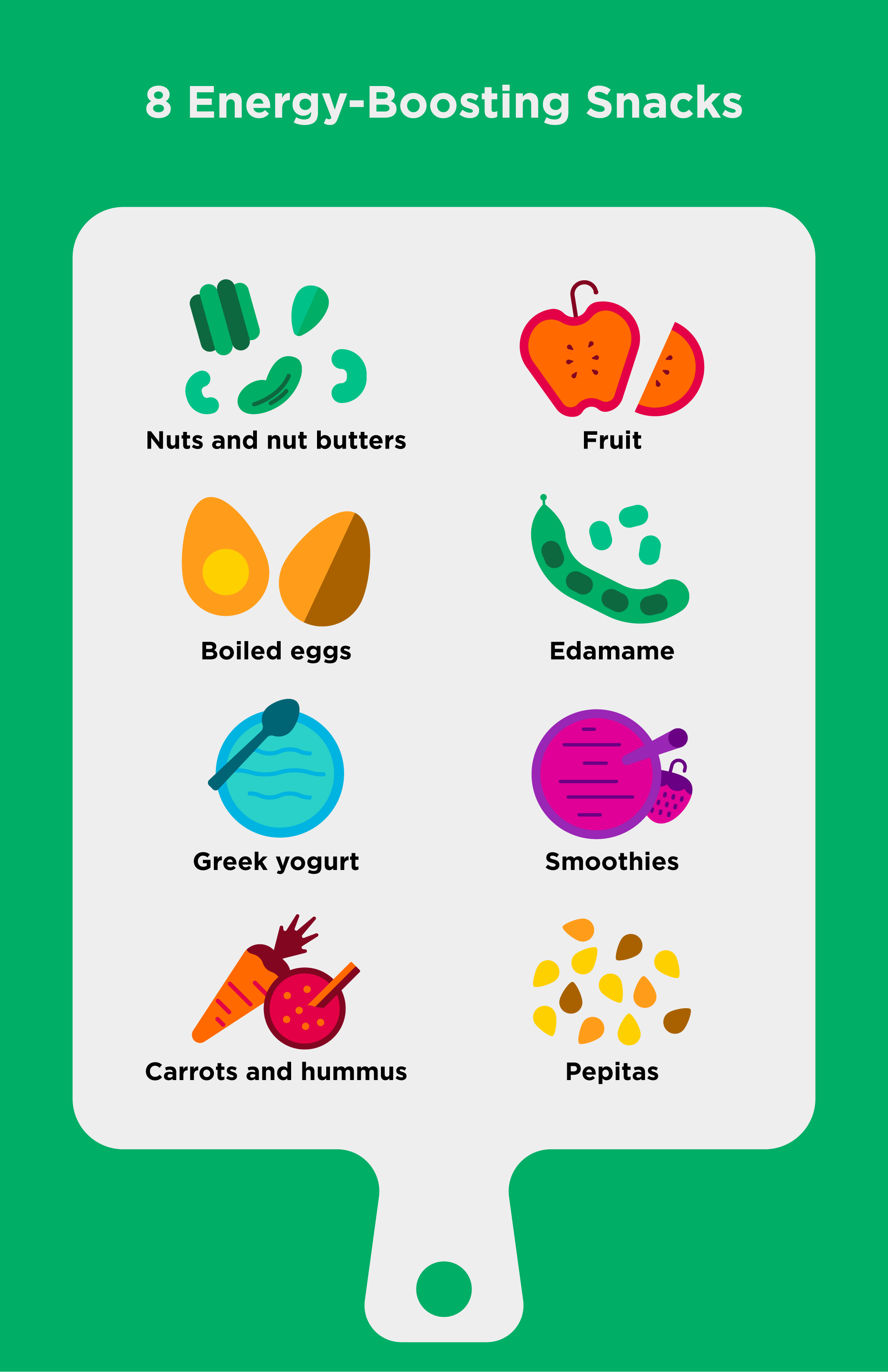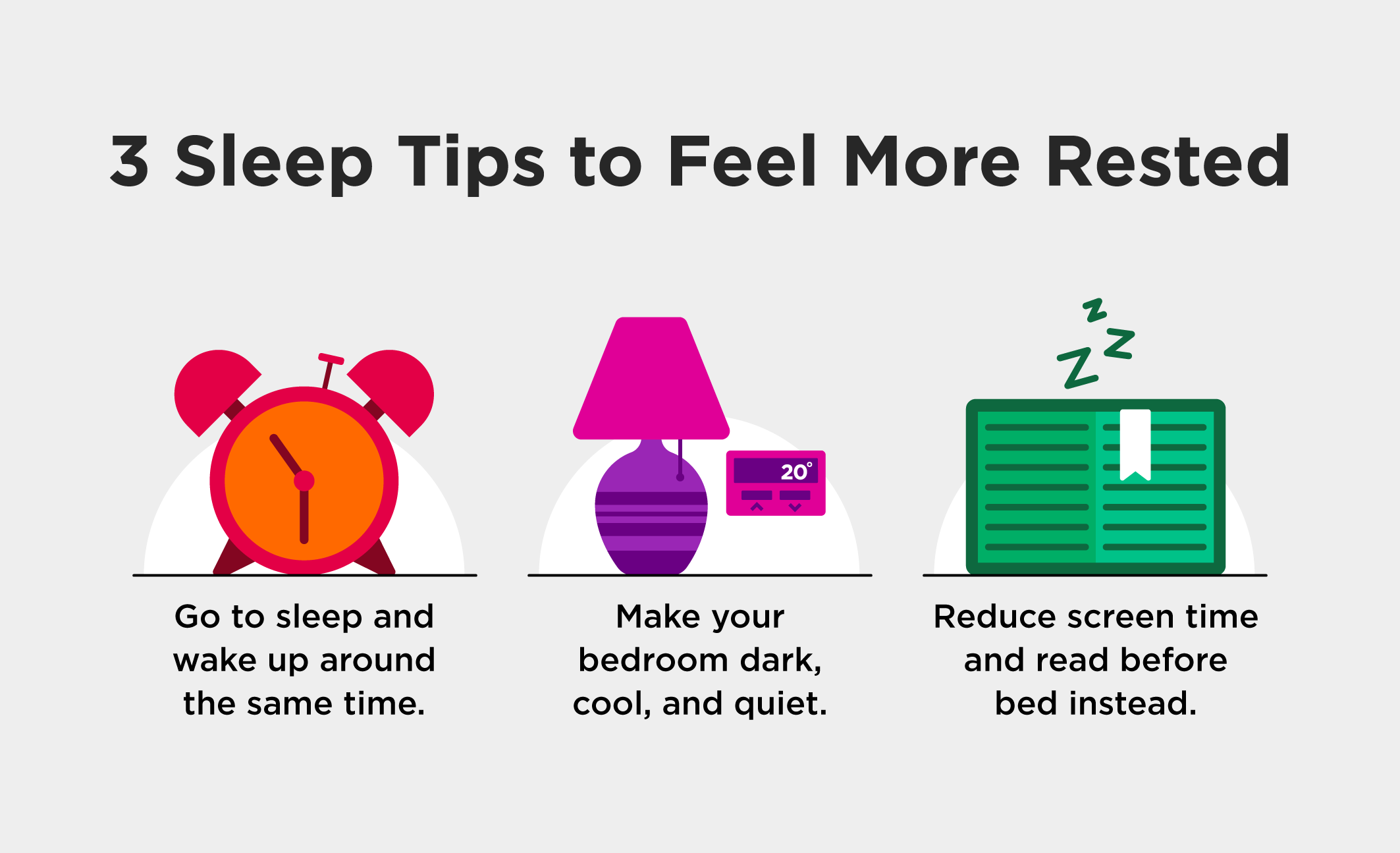How to Feel More Awake: 15 Hacks for Boosting Energy

quick answer
Are you desperate to figure out how to feel more awake after falling asleep in class? See our 15 tips for boosting energy and busting daytime sleepiness.
In This Article
Do you often find your head dropping, falling asleep to the sound of your instructor’s voice in your morning class?
Sleep deprivation is no joke, and for post-secondary students, sleep is often in short supply. In fact, college students claim the title of the most sleep-deprived group of adults, with 50% reporting daytime sleepiness.
We all occasionally face this struggle after a night of poor sleep. To help, we’ve compiled 15 tips and quick hacks on how to feel more awake and improve your sleep to feel more rested throughout the day.
If you’re sleepy, grab your tennis shoes and head to the gym. Exercise — even if just a short walk — wakes up the mind and body because of an increase in blood circulation and release of endorphins, according to John Hopkins Center for Sleep.
Getting a workout in may also improve your nighttime sleep — just be sure to schedule your workouts at least two hours before bedtime.

There’s something about stepping outside and feeling the fresh air on your face that just feels good — and there’s actual science to back it up.
When sunlight is absorbed into the skin, the body produces vitamin D and triggers dopamine production. Optimal levels of dopamine increase alertness.
In North America, vitamin D deficiency affects a significant portion of the population — almost half of all Canadians suffer from mild to severe deficiencies. It’s important to get outside, not just for a jolt of energy but also for your overall health.
Even if it’s gloomy and rainy, cool air on your face can bring a burst of wakefulness.
What is one of the first things you do when you wake up in the morning? You likely open the blinds or turn on a light to see. Brightening the room also signals to the brain that it’s time to wake up. This is because the body’s circadian rhythm is sensitive to light.
Sitting in a dimly lit room is bound to make you tired. Use this same trick throughout the day when you need a pick-me-up.
An ideal sleep environment is a cool, dark room, so it might seem counterintuitive to encourage wakefulness by being cold. However, think of a cold plunge. The sudden, drastic change in body temperature increases your heart rate and adrenaline, bringing a large burst of energy.
While most of us enjoy our showers hot, cold showers work similarly to a cold plunge. If you can’t hop in the shower, try splashing cold water on your face instead.
Dehydration causes the heart to overwork itself trying to oxygenate the brain and other organs, leading to fatigue. Up your daily water intake to stay energized. It’s advised to drink two to three litres of water per day — that’s about four to six refills of your Robertson water bottle a day.
With this in mind, try to limit beverages like caffeine and alcohol. Caffeine might help you feel more awake briefly, but indulging too much or too late in the day can negatively affect your sleep.
It’s common knowledge that food is essential to convert into energy. However, it’s important to be wise about what foods you fuel your body with. Stock your diet with whole foods that contain natural vitamins and minerals, such as vitamin B, which converts protein and fat into energy.
Additionally, large meals can leave you feeling stuffed and tired. Snacking on nuts, fruits, and vegetables is a great way to maintain an adequate energy level.
Greasy or sugary foods may make you feel lethargic or come with a crash later in the day. It’s okay to balance your diet with healthy whole foods and snacks to fill those sugar cravings, but if you’re groggy, maybe save the treats for a different day.

You’ve heard it before — breakfast is the most important meal of the day. Skipping meals because you’re running low on time may do more harm than you realize, especially in the morning. It negatively affects your blood sugar levels and, ultimately, your energy levels.
Choose your first meal wisely. Loading up on carbohydrates in the morning can leave you feeling sluggish a few hours later because they can spike your blood sugar. You don’t have to avoid your oatmeal or toast altogether, but be sure to balance it with protein-filled options like scrambled eggs or a peanut butter and banana smoothie.
Additionally, doctors and scientists recommend eating breakfast with water before your morning cup of joe.
When you’re stressed, your body feels it — chronic stress wreaks havoc on the brain, digestive and cardiovascular systems, hormones, and much more. You’re likely to feel exhausted.
If you’re feeling stressed, take a break from what’s causing the stress and put your mind elsewhere. Step away and do something you enjoy for a while to reset your mental state. Find more mental health self-care tips here.
Bodily organs function at their best when properly oxygenated. This includes the brain. Deep breathing sends more oxygen to the brain, helping you feel more alert. Pair your deep breathing exercises with meditation at home to freshen your mind.
When you think of aromatherapy, do you envision a peaceful spa setting — aka the perfect place to get you relaxed and sleepy? Using something so relaxing to wake you up may seem counterintuitive, but with the right scents, you may find that diffusing essential oils works.
For example, the menthol in peppermint acts as a natural vasodilator — it opens blood vessels and aids in circulation and oxygen sent to the brain. You may feel similar effects when chewing minty gum or candies.
Try diffusing herb essential oils like peppermint, basil, rosemary, or eucalyptus to feel more awake.
Laughter is the best medicine — you’ve heard it hundreds of times. When you’re tired from a busy lifestyle or stress, take a minute to find something funny. Laughing can help you feel more awake because it boosts your endorphins and acts almost like a cardio workout stimulating your heart and lungs.
Next time you feel sluggish, listen to a funny podcast or call your wittiest friend.
Have you ever noticed how you feel different emotionally and physically depending on the person you’re next to? Spending time with someone with a negative outlook on life can be emotionally draining, making you ready for a nap when you part. Similarly, an optimistic friend with an upbeat personality can rub their energy off on you. It’s called social contagion.
If you find yourself exhausted after hanging out with your usual crowd, try to find a new friend group that makes you laugh and that you enjoy being around.
Being stuck in a routine can make you feel like you’re just rolling through the motions. Sometimes routines, or even a monotonous task, can be tiring.
Try switching it up to break the cycle. It doesn’t have to be a major change, just something different to break up your day. If it’s one particular task that you’re dragging your feet trying to complete, step away and come back to it later when you’re more alert.
If none of the hacks mentioned above seem to curb your sleepiness, a nap might be your best bet. Napping can be tricky because you don’t want to overdo it — it may hurt your nighttime sleep or leave you feeling worse than you did before.
In most cases, aim for a 20-minute nap or cap your naps at 30 minutes at the maximum. Otherwise, you may enter into the deeper stages of sleep, making it harder to wake up and have you feeling groggy.
If you are sleep deprived and have the time, a longer nap can be beneficial. In this case, set your alarm for an hour and a half so your body can cycle through all sleep stages uninterrupted.
Additionally, keep your naps — especially those longer sessions — several hours before bedtime. For most adults, this would be no later than 3 p.m.

While not a quick fix like a nap, it’s important to prioritize your nighttime sleep, so you wake up feeling rested in the morning.
To make the most of your sleep, try to:
Remember, there isn’t enough coffee in the world that can help you feel more awake like a good night’s sleep can.
When pushing through sleepiness to make it through class or work, try these tips on how to feel more awake. However, forcing yourself to stay awake for extended periods can lead to sleep deprivation and dangerous situations. The body and mind need rest to survive. Eventually, sleep will be inevitable, and it’s not wise to let your body reach that breaking point.
If you can barely stay awake nearly every day, it may be time to see a doctor, as an ongoing issue could be due to an underlying health issue.
In This Article
Once you take the first step, one of our Student Admissions Advisors will get in touch to better understand your goals for the future.
Apply Now